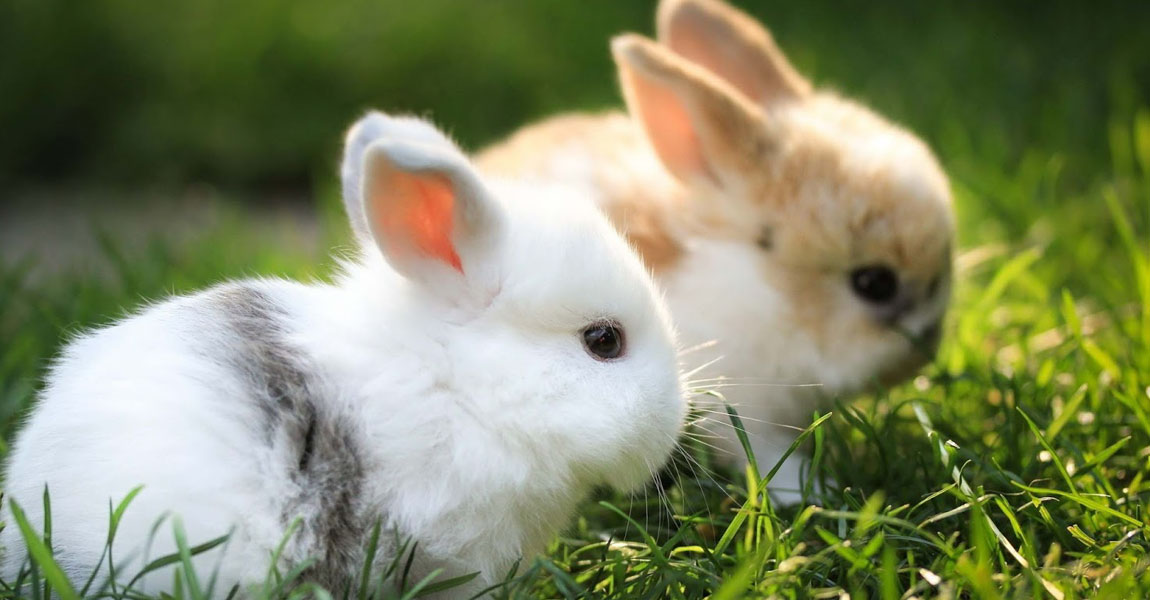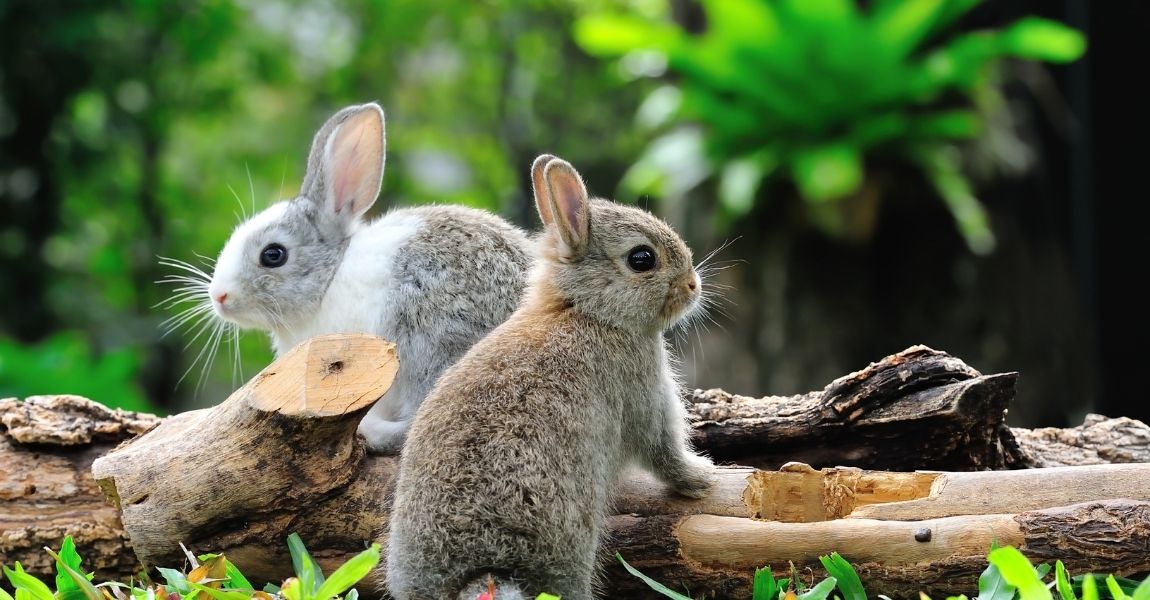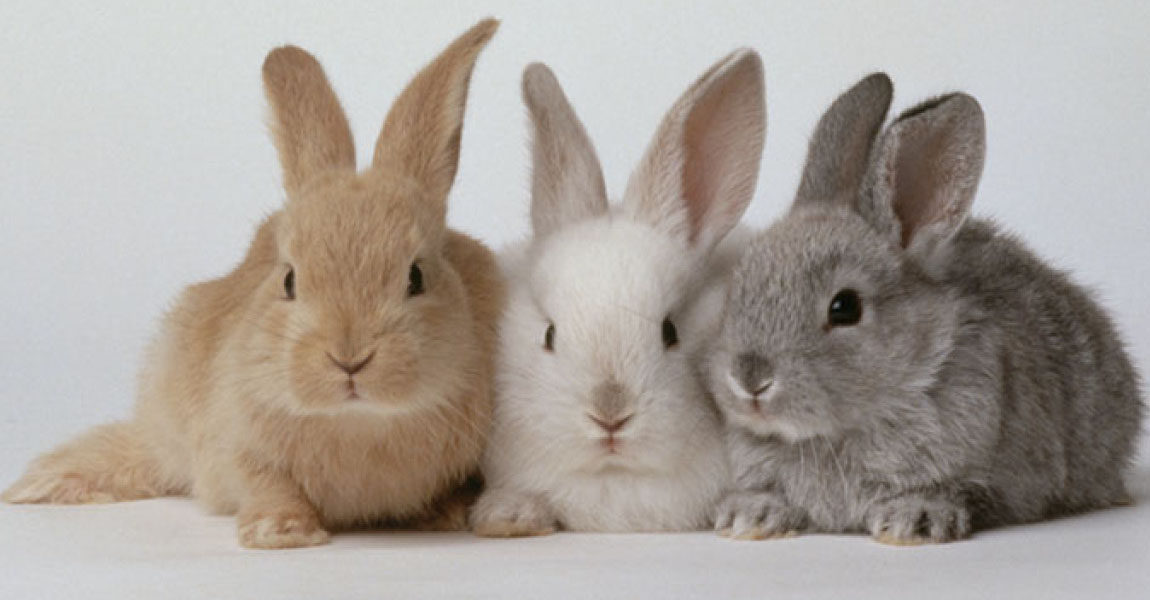Rabbits are classed as small pets. They are relatively shy animals with luxuriously soft fur. These surprisingly intelligent critters are wonderful for almost any child (granted they are responsible and empathic) or adult to enjoy. Rabbits can live for five, 10 or even 15 years when they are well cared for, so they require your full commitment. They enjoy being around people and are very affectionate, playful, clean and can even be litter trained.
If you are interested in getting a bunny as a family pet, it is important to consider and know what is good for the animal. Having a small fluff ball in the house can be fun to cuddle and hold, but it’s crucial to know what to expect and how to keep your bunny healthy and happy as it gets bigger and older. It’s always best to do enough specific research before committing to an animal, for both your family and your pet. This will prevent the disappointment and heartbreak of reconsideration.
Like any other pet, rabbits have their own quirks, tendencies and personalities. That is also why rabbit owners need to consider their lifestyle and understand how a rabbit will fit into their household space, especially since rabbits tend to be more fragile than cats and dogs. Once you have decided that you are ready to have a bunny in your home, what are the next steps?
Adopting a bunny
Call the SPCA or other shelters and find out if they might have a fluffy bun that needs a home. When you take your bunny home, you should already have all the food and shelter necessities ready, and fresh water should always be available. Although it may take a little longer, you should start with litter training the day you bring your bunny home.
Nutrition
Contrary to the impression you may have of Bugs Bunny, hay should form the bulk of your rabbit’s diet and fresh hay should be available at all times. Hay is crucial for a rabbit’s diet because it provides all the essential fibre for healthy digestion, and it helps to wear down the rabbit’s teeth for good dental health.Vegetables such as carrot tops, celery, bok choy and lettuce are other staple foods for rabbits. Treats like apples, raspberries, strawberries, pineapple and banana are loved by many rabbits, but try to limit the amount you give because too much fruit sugar is not good for your small furry friend. Don’t feed rabbits cabbage or broccoli because they can cause gas. Fresh pellets are acceptable as a supplement for a rabbit’s diet, especially if they’re low in protein and high in fibre. It’s important to have a good understanding of your rabbit’s nutritional needs throughout her life, so speak to your vet and make sure you are balancing your bunny’s diet.
Bunny home
Rabbits are very social creatures and love to be in the company of humans (if tame enough); however, they also like to have their own space where they can have some quiet time and feel safe. Allocate a spot in your home that will be your bunny’s own personal area. Whether it is a puppy playpen or a cardboard box, make sure that your bunny will feel safe and comfortable enough to sleep. Bunnies like to sleep in a hole or a closed off private area. Consider getting your rabbit a dome, a tent or a small kennel for her to sleep in. Provide her with a litter tray and start to potty train your bunny as soon as possible.
Bunny-proof your home
Whether your bunny will have free reign in your home or will be in a puppy pen, enclosure or a hutch, you will still need to safeguard your home for when your bunny gets supervised exercise. Bunnies are curious creatures and love to chew. Make sure your bunny cannot get to any wires, projects or important paperwork. Also keep your house plants out of reach so that they don’t become a spontaneous bunny snack!
Handling your bunny
Rabbits can be very social and affectionate, but like dogs and cats, each individual has their own personality. Most rabbits do not like to be picked up or held and some bunnies are more aloof than others. It may take a while before your rabbit trusts you to have good intentions, but rather start out stroking your rabbit than going straight for the pick-up. She may let you pick her up in future after a lot of bonding.
Travelling
Rabbits get very stressed out when placed in an unfamiliar or new environment, so it’s best to find a vet that will come to your home, and book a pet sitter when going on holiday. If you are a big traveller and love exploring the world, or you spend a lot of time at work and have few hours available at home, then owning a rabbit is probably not for you.As with many other pets, it’s best that you know what is expected in terms of rabbit care. Rabbits have long life spans and they rely on their owner all the time. Rabbits are not ‘starter pets’ and should never be given as gifts to children who are not ready for the responsibility of taking care of them.





